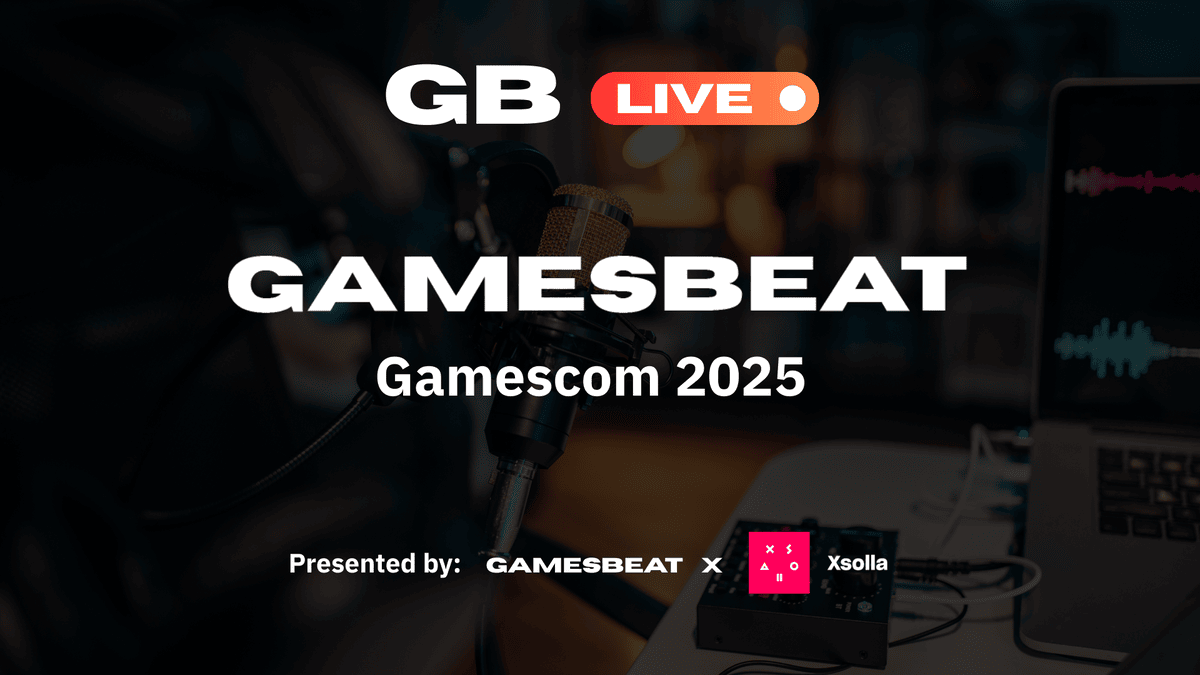Partner content, presented by Xsolla
At Gamescom this year, Dubai made its first appearance with an official pavilion, backed by entities such as Dubai Culture and Arts Authority, which sponsored three indie developers to showcase their games on the global stage. These early efforts aim to build visibility, attract investment, and seed homegrown success stories.
For GamesBeat Live, presented by Xsolla, GB’s Editorial Director Dean Takahashi sat down with Faisal Kazim, Director of Future Foresight at the Dubai Future Foundation, to explore how Dubai is aiming to become one of the world’s biggest new hubs for game development.
A government mandate
In November 2023, the government of Dubai launched its most ambitious initiative yet: the Dubai Program for Gaming 2033. Backed by His Highness the Crown Prince, the program aims to create 30,000 jobs, contribute $1 billion annually to Dubai’s GDP, and establish Dubai as a global leader in gaming by 2033.
“We’re doing it the hard way,” Kazim says. “Instead of just offering financial incentives, we’re building relationships, taking feedback, and creating an ecosystem that grows organically. That’s how you ensure long-term impact.”
His Highness the Crown Prince launched the Dubai Program for Gaming with the intention of having one working group that represents Dubai as a unified effort for growing the games industry. This working group consists of various government entities, from licensing entities that are responsible for policies and regulation to entities that are responsible for offering spaces, real estate spaces, to telecommunications and so on.
Why Dubai?
There are a lot of misconceptions about what Dubai and the region are like, particularly in the west. But it’s a city of cultural diversity, financial freedom, and political stability, which stands out in a period of uncertainty and geopolitical conflict around the world. The robust tourist trade helps the local economy thrive, and that’s reflected across the city infrastructure, both in the visitor-facing major attractions like the Museum of the Future and the Burj Khalifa, and in the daily lives of residents.
“People end up coming to Dubai and one of the first things they tell us is, wow, we didn’t think Dubai was like this, and then all of a sudden they start thinking, what if we open an office in Dubai?” Kazim says. “They start thinking about what the schools are like, what the services are like, and they start exploring those things.”
And while Dubai is not yet offering the short-term incentives that some growing game industry centers offer to developers, the government is focused on making the city a soft place to land for both professionals and their families.
“We have government entities that are focused specifically on guiding teams in terms of–not just how to set up offices, but also for things like showing them the right neighborhoods, schools, and so on,” he explained. “We do as much as we can to at least provide some sort of safety net for this industry that has, especially in recent years, become so unstable.”
A home for new studios and stories
The results are already tangible. In its first year, the program drove 16.6% growth in gaming companies in Dubai, now totaling more than 350, with game developers as the largest category. The city also hosts its first gaming unicorn, Yalla Group, listed on the NYSE and valued at over $1.3 billion.
But Dubai is an environment that especially supports the smaller studios and teams, in a world where games don’t have to be triple-A monsters to win significant attention and market share — they just need unique new perspectives and narratives.
“Those things can easily be achieved in a place like Dubai,” he said. “It’s home to a culture like no other. It’s home to stories that haven’t been told before.”
An investment in education
In long-established gaming hubs like Japan, Europe, or the U.S., there’s a rich history of industry knowledge for young developers to draw on, when second- and third-generation developers mentor the incoming wave. To close that gap, Dubai is investing in education. American University in Dubai and the SAE Institute now offer bachelor’s degrees in game development and design.
They’re also forging partnerships with these institutions to establish internship and mentorship opportunities from top developers and top studios from around the world, studying both locally and traveling abroad to gather the firsthand knowledge that is irreplaceable.
Focusing on investments
The region has an established sector-agnostic investment ecosystem. There is a great deal of tech investments and now more opportunities are opening for games.
“That’s an area of opportunity for VCs that are focused on gaming to consider opportunities in Dubai, or maybe it’s our responsibility to host sessions to educate local investors on how to invest in games,” Kazim said. “We’re known for doing big things, bold things. We’re going to do everything we can to make that happen in gaming as well.”
GB LIVE is GamesBeat’s coverage of industry events in tech, AI, entertainment, and gaming — featuring exclusive footage either streamed live or filmed on-site and then aired at a scheduled time. Whether broadcasted in real time or released later, GB LIVE delivers high-impact conversations, insights, and thought leadership from the forefront of innovation. Content is streamed across GamesBeat and social channels, then also made available on demand as part of post-event coverage.
Select GB LIVE segments may be produced in collaboration with sponsors and are labeled as partner content. To learn more or to explore partnership opportunities, reach out to partnerships@gamesbeat.com.


